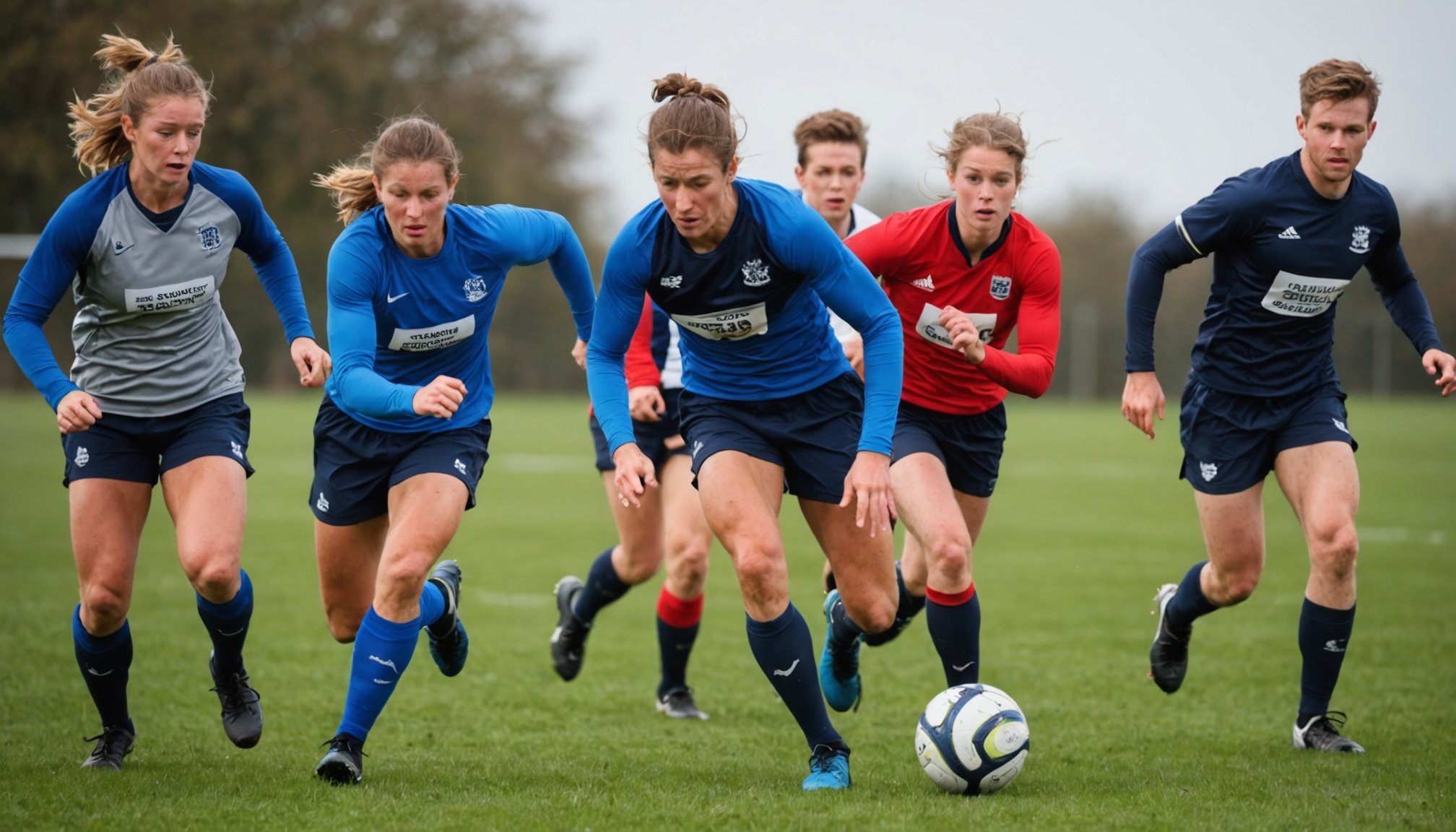Understanding Grit in Sports
Grit in sports signifies a combination of mental toughness and unyielding perseverance towards long-term goals. This attribute is pivotal in distinguishing elite athletes, as it often translates to improved performance and sustained success, even in challenging conditions. In the realm of sports psychology, grit forms the foundation upon which resilience and endurance are built.
The essence of grit involves psychological factors such as motivation, focus, and the ability to recover from setbacks while maintaining commitment. Athletes demonstrating high levels of grit invest substantial effort over time, displaying remarkable persistence despite obstacles.
Also to discover : Revolutionizing off-season training: cutting-edge techniques for uk sports teams
Numerous case studies highlight teams exemplifying strong grit, positively impacting their performance. For instance, teams renowned for their unwavering determination often excel in high-pressure scenarios, outperforming teams with less psychological endurance. This hardiness is not only beneficial for individual athletes but also enhances overall team synergy.
To integrate grit effectively, understanding its profound impact within the context of sports is crucial. By cultivating mental toughness through structured psychological strategies, athletes can develop resilience, ensuring sustained excellence in their sporting pursuits.
Also read : Transforming sports training: how virtual reality is shaping the future of uk athletic teams
Strategies for Coaches to Foster Grit
Creating a strong team culture is essential for developing grit among athletes. By establishing a supportive and challenging environment, coaches can promote resilience and psychological growth. One effective approach is integrating coaching strategies that highlight the value of consistent feedback and accountability. This encourages athletes to own their progress and foster leadership in sports.
Focusing on practical techniques, such as setting attainable goals and offering constructive criticism, helps athletes navigate difficulties while maintaining motivation. Coaches can instil grit by incorporating activities that test both physical and mental limits, enabling athletes to push through adversity.
Creating a culture that celebrates both successes and failures allows athletes to view setbacks as learning opportunities, fostering a growth mindset. By encouraging dialogue and actively listening to team members, coaches can identify areas for improvement and cultivate enhanced performance.
In fostering grit, the emphasis should be on patience, persistence, and continuous improvement. This results in teams better equipped to face competitive challenges, ultimately building a cohesive and resilient force.
Techniques for Athletes to Build Endurance
Enhancing endurance training is crucial for athletes aiming to improve both physical fitness and mental resilience. Specific routines are designed to target these areas, offering a comprehensive approach to sustained performance. These routines often include a mix of aerobic exercises, strength training, and flexibility work, ensuring athletes develop the stamina needed for competitive sports.
Goal-setting plays a pivotal role in building mental resilience. By setting realistic and achievable objectives, athletes can maintain focus and motivation through challenging training sessions. This not only assists in tracking progress but also helps in managing expectations and reinforcing positive behaviours.
Incorporating mindfulness and visualization techniques can also significantly boost performance. Mindfulness practices teach athletes to stay present and manage stress, while visualization helps in mentally rehearsing scenarios, enhancing decision-making under pressure.
Utilizing these techniques collectively empowers athletes to not only endure physically demanding situations but also to remain mentally robust and adaptable. Such a holistic approach ensures athletes are well-prepared to handle the rigours of their sport, reinforcing their commitment to continuous improvement and peak performance.
Team Dynamics and Grit
Team cohesion is a cornerstone of building grit, where consistent collaboration and mutual support are key. By engaging in team bonding activities, athletes foster resilience together, enhancing their overall dynamics. Activities such as group challenges or trust-building exercises can significantly bolster team spirit.
The communication styles within a group also greatly influence grit levels. Open and honest communication promotes transparency and trust, laying the groundwork for a robust team culture. Teams that excel in communication often display higher levels of grit, as members feel understood and supported.
Sportsmanship is another critical component that contributes to grit. It encompasses not only fair play but also respect and encouragement within the team. By cultivating sportsmanship, teams can create an environment that encourages resilience through mutual respect and a shared commitment to overcoming challenges.
Examples of successful teams emphasising these elements include those that prioritise team-building initiatives and maintain open communication channels. Such teams demonstrate that fostering a culture of support and grit is essential for long-term success in sports. By nurturing these dynamics, athletes can thrive individually and collectively, facing competitive challenges with a unified front.
Overcoming Challenges and Setbacks
Facing setbacks is an inevitable part of sports, demanding effective coping strategies to maintain performance. Common setbacks include injuries, game losses, and performance slumps, all of which challenge an athlete’s resilience. To tackle these issues, UK sports teams often adopt structured resilience training programs. These focus on building mental toughness through psychological exercises, promoting a mindset capable of withstanding adversity.
Key strategies involve regular practice of mindfulness techniques designed to keep athletes grounded and focused during stress. Visualisation exercises create mental scenarios of overcoming obstacles, thereby enhancing sports recovery by mentally rehearsing solutions.
Recovery and reflection are integral to fostering a resilient mindset. Post-event debriefings encourage athletes to evaluate their performance, understand errors, and celebrate achievements. This reflective process is crucial, as it permits learning from every experience, strengthening the athlete’s mental framework for future challenges.
Developing a robust recovery routine that includes physical therapy and rest ensures athletes are primed to continue striving towards their goals. Emphasising recovery not only rejuvenates the body but also supports psychological renewal, reinforcing the athlete’s overall resilience in sports.
Expert Insights and Resources
Incorporating insights from sports experts can significantly elevate grit in athletes. These professionals offer profound knowledge on how to maintain and nurture resilience. Engaging with experienced sports psychologists can provide invaluable guidance in shaping a mentally robust team.
Access to psychological resources is also crucial for developing grit. Recommended reading includes books such as “Grit: The Power of Passion and Perseverance” by Angela Duckworth and “Mindset: The New Psychology of Success” by Carol S. Dweck. These resources provide strategies and practical advice for fostering mental toughness.
Participating in training workshops specifically designed for resilience development can further enhance both team and individual effectiveness. These workshops often cover techniques such as stress management and mental conditioning, tailored to the unique demands of sports.
Collaborating with experts allows teams to integrate cutting-edge practices into their resilience training programs. These collaborations can include seminars or coaching clinics, where experts share the latest methodologies. By embracing expert insights and resources, teams gain a competitive edge, fostering a culture of long-term success and perseverance.











